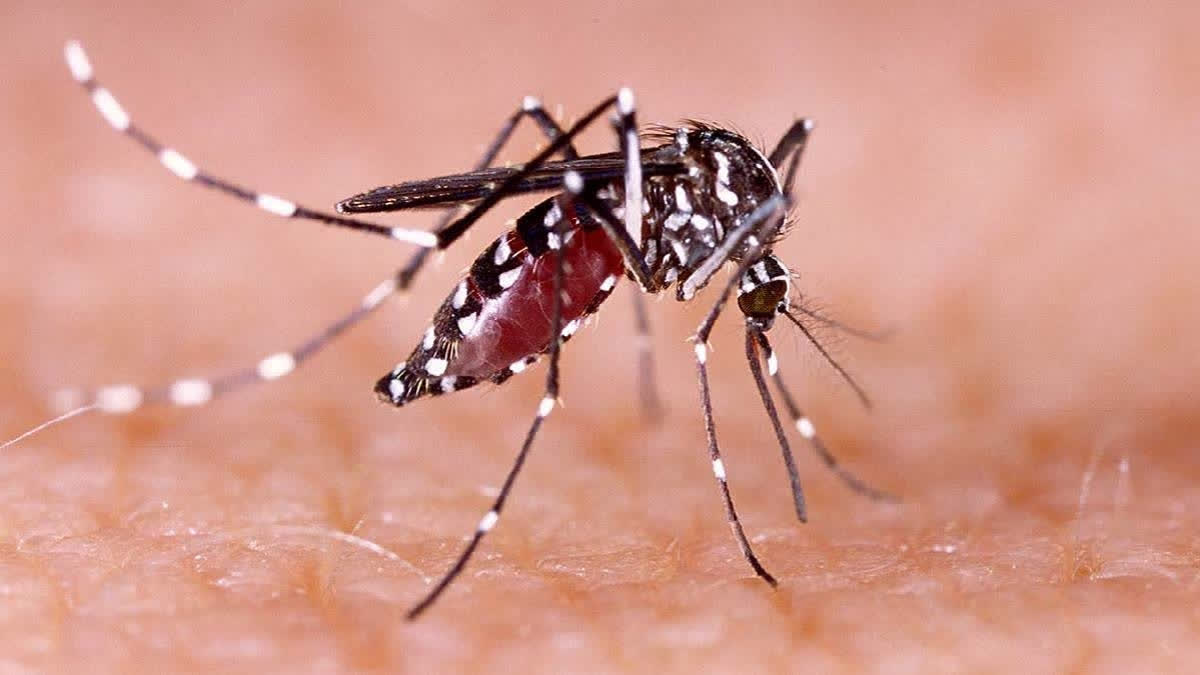Dengue cases are on the rise in Karnataka, with the state recording over 5,000 instances of the mosquito-borne disease. Official figures reveal that from January to June, more than 5,300 cases have been reported. In Bengaluru alone, over 1,000 cases were reported within a span of just 20 days.
In response to the increasing dengue cases, Karnataka Chief Minister Siddaramaiah directed officials on Tuesday to prioritize the detection and treatment of the viral infection. He convened a meeting with Health Minister Dinesh Gundu Rao and senior officers, instructing them to ensure adequate availability of treatment, medications, and platelets. The state has recorded five fatalities attributed to dengue thus far.
Furthermore, the Bruhat Bengaluru Mahanagara Palike (BBMP), the city municipal corporation, has announced plans to conduct larval surveys in half of Bengaluru’s households to curb dengue cases. According to the Deccan Herald, BBMP will also acquire 38,000 NS1 antigen kits from the Drugs Control Department to test individuals exhibiting symptoms of dengue.
With Bengaluru city (BBMP limits) accounting for nearly 60% of Karnataka’s dengue cases this year, the State Health Department and BBMP have developed a mobile application to enhance monitoring of this vector-borne disease. Health Minister Dinesh Gundu Rao announced that alongside this initiative, an Artificial Intelligence-powered model for dengue predictive analysis will also be introduced in the city on Friday, September 8.
To see in this article
According to official records, Mahadevapura and East zones have recorded the highest number of dengue cases. The districts of Bengaluru, Chikkamagaluru, Mysuru, Haveri, Shivamogga, Chitradurga, and Dakshina Kannada have reported a significant majority of these cases, with 1,230 cases specifically within BBMP limits, as reported by The Hindu. Additionally, the health minister directed health officials to test all individuals presenting with symptoms resembling dengue.
PHOTO CREDIT : X
Door to door survey
To combat the spread of dengue in the city, the Bruhat Bengaluru Mahanagara Palike (BBMP) will undertake a door-to-door survey emphasising larva testing and raising awareness among citizens, announced Chief Commissioner Tushar Giri Nath on Wednesday following a meeting with officials.
He stated that approximately 2.5 million urban poor residing in densely populated and low-lying areas have been earmarked for the survey across all BBMP zones. Health inspectors, ASHA workers, ANMs, nursing college students, and NSS volunteers will be mobilised to form teams covering blocks of 1,000 houses each. The objective is to survey between 1.2 to 1.4 million houses every 15 days.
Subsequently, they are to pinpoint larval breeding grounds, educate residents, and advise individuals with fever to visit nearby primary health centres (PHCs) for testing. He emphasised that officials have been directed to carry out a thorough door-to-door survey and submit detailed reports.
Treatment and prevention for dengue
There is no targeted cure for dengue infection. According to WHO, the emphasis is on managing pain symptoms. Typically, dengue fever can be managed at home using pain relief medication.Acetaminophen (paracetamol) is commonly employed to alleviate pain. Non-steroidal anti-inflammatory drugs such as ibuprofen and aspirin are avoided due to their potential to raise the risk of bleeding.In cases of severe dengue, hospitalization is frequently required, as per WHO guidelines.
To effectively prevent dengue fever, focus on eliminating stagnant water sources where mosquitoes breed in homes, schools, workplaces, and nearby areas, and take steps to avoid mosquito bites.
‘Let’s eliminate stagnant water and mosquitoes for a healthier environment.’ Here are important measures to consistently implement:
- Dispose of used cans and bottles in covered dustbins.
- Change plant water weekly, ensuring no water remains in pot saucers.
- Securely cover all water containers, wells, and storage tanks.
- Maintain clear drainage to prevent blockages.
- Level uneven ground to prevent water pooling.
- Wear long-sleeved clothing and trousers.
- Apply insect repellent on exposed skin.
- Use mosquito screens or nets in non-air-conditioned rooms.
If you identify mosquito breeding sites in public places, contact the Food and Environmental Hygiene Department Hotline at 2868 0000.




2 Comments
Pingback: Dengue cases in Bengaluru: Causes and Prevention in Monsoon
Pingback: Kerala Teen Dies of Brain-Eating Amoeba: All You Need to Know About Naegleria fowleri